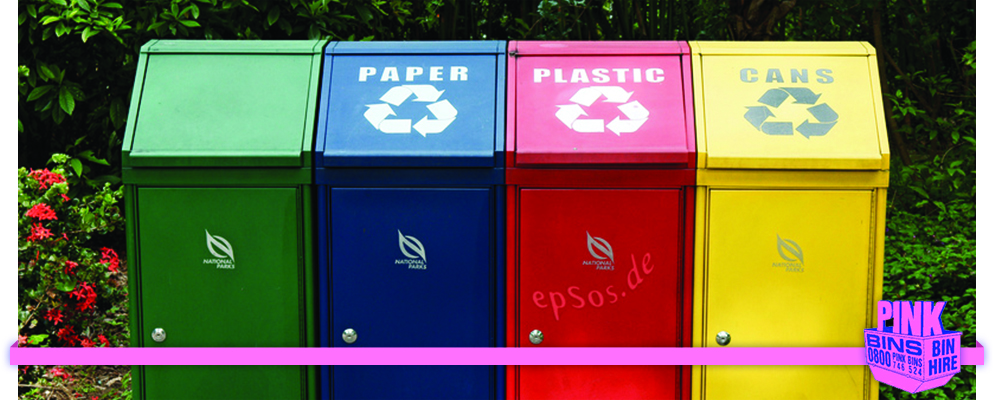Worldwide, New Zealand has a reputation for being clean and green. It seems, though, that we Kiwis aren’t as flash at recycling as we think. In fact, the United Kingdom, Ireland and Scotland — countries that probably admire our ‘greenness’ — are doing better. Come on, Kiwis, we can lift our game! Here are three hot-pink tips for disposing of your waste.
1: Reuse
Well, if you’re of a certain age, you’ll remember that rather than throwing stuff out, people would reuse or — shock horror — have it repaired. Of course, these days, unwanted household items are likely to end up in landfill. We’re here to tell you that there are other options.
- Old t-shirts — give them a new lease of life by cutting them up for rags or using them to wrap fragile items when you’re moving house. Or, if they’re still in good condition, donate them to a charity like the Salvation Army.
- Egg cartons — no, don’t use them to line the walls of your home-build recording studio. The value of egg cartons for creating an acoustic environment is a myth. Instead, they’re good for starting seedlings in your garden and, if you’re a golfer, storing golf balls. The cardboard variety is highly recyclable, so if you need to get rid of them, make sure they end up in your recycling bin.
- Old socks — is there a sock monster in your house? One that cruelly devours single socks leaving their counterparts alone? Well, you can use your odd and redundant socks for all sorts of things like organising small toys and keeping bits and pieces, like paper clips and screws, in one place. They’re also handy for putting over your shoes during messy jobs, like painting.
2: Biodegradable bin liners
We’ve discussed the dangers of plastic many times in this blog. Well, the good news is that you don’t need to use plastic bags to line your waste bin. Biodegradable liners, which are made of corn starch and are 100% compostable, are a far more environmentally friendly option. They only take up to 180 days to break down in a typical composting environment and, most importantly, leave no toxic chemicals while doing so. Compostable bags don’t break down in the ocean, though, so make sure you dispose of them carefully.
3: Food scraps for compost
Do you know that around half of household rubbish is food and garden waste? Well, if you have a veggie garden, you can make good use of your leftover dinner by using it to nourish your cabbage patch.
Here are examples of food waste that you can use for compost:
- coffee grounds and tea bags
- vegetables and fruits
- grains, like rice and barley
- bread, biscuits, pizza, and pasta.
Check out this detailed article about food composting.
Doing your bit for the environment isn’t difficult. It just takes a little thought and effort. And, as a bonus, you can save money, too.
Did you enjoy this post? If you did, please share.

